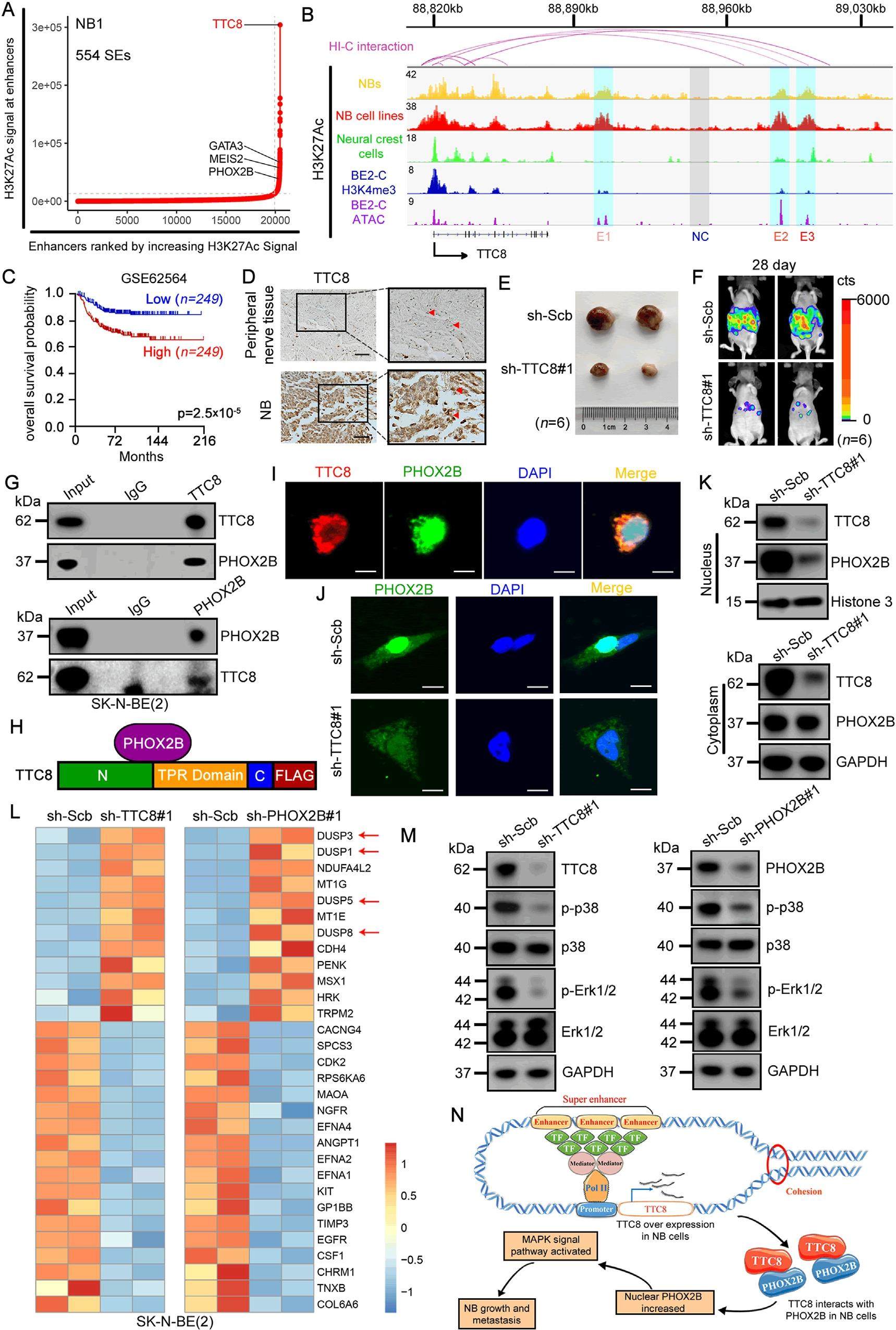
Super-enhancer-associated TTC8 alters the nucleocytoplasmic distribution of PHOX2B and activates MAPK signaling in neuroblastoma


Super-enhancers are regions of the mammalian genome comprising multiple enhancers in close proximity and often enriched at cancer genes. Recent studies suggest the emerging roles of super-enhancer-associated genes in underlying the cell identity of neuroblastoma (NB) which rises from neural crest-derived cells and is one of the most common malignant solid tumors in children. Tetratricopeptide repeat domain 8 (TTC8), a member of the BBS family of proteins involved in ciliary transport, is our newly identified super-enhancer-associated gene in NB, and its roles in tumorigenesis remain elusive. Herein, TTC8 expression levels were significantly upregulated in NB and correlated with poor prognosis in patients through integrative analysis of public datasets and microarrays. Further investigations show that TTC8 drives the growth and aggressiveness of NB cell lines both in vitro and in vivo. Mechanistically, TTC8 interacts with Paired-like homeobox 2B (PHOX2B), a master transcription factor in NB, to regulate the nucleocytoplasmic distribution of PHOX2B, thereby activating the MAPK signaling pathway, promoting the occurrence and development of NB. In summary, we find that TTC8 might be a potential target for the treatment of NB, warranting further exploration of its specific mechanisms of action.
